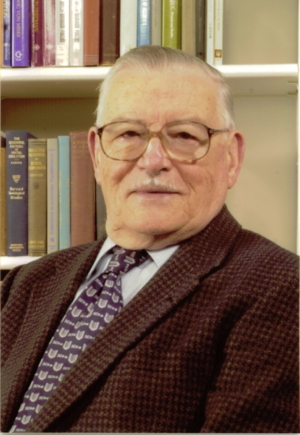Liberty Matters
Viktor Vanberg’s comment

Geoffrey’s remark on the “constitutional right to veto” as “the core of the classical liberal commitment in the Buchanan scheme” provokes me to add a few qualifying arguments to which, I presume, Geoffrey can subscribe.
To begin with the easier case of constitutional contracts that individuals conclude as private-law subjects when, in a market environment, they form voluntary associations, such as business enterprises or sports clubs: Those who originally form and those who later join the existing association testify by their voluntarily doing so that they agree to its constitution. Anticipating that in a changing world the need for constitutional adjustments may arise, they will have prudential reasons – as they have been elaborated by James Buchanan and Gordon Tullock in The Calculus of Consent – to accept provisions in the constitutional contract that allow for changes in particular rules to be made with less-than-unanimous approval by all members. In other words, considering the disadvantages of requiring unanimity as a decision rule even at the constitutional level, there are prudential reasons for them to dispense with a veto-right with regard to partial constitutional reforms. They retain, though, a “veto-right” with regard to the inclusive constitutional contract in the sense that they can exit from the association if a constitutional change they disapprove weighs in their assessment heavy enough so as to outweigh the advantages they can expect from keeping up their membership.
The more difficult case concerns the constitutional contract on which political communities or states are based. A particular feature of these associations is that membership status is typically not acquired by explicit voluntary choice but by being born into the community. That is, for most members we can only take the fact that they maintain their “imposed” membership status in the face of viable exit-options as an indicator of their implicit agreement to the constitutional contract on which the political community in which they live is based. Furthermore, the prudential reasons that require even relatively small private associations to allow for non-unanimous constitutional reforms apply a fortiori to political communities that comprise much larger numbers of members. Citizens-members of such communities do, therefore, not have a veto-right with regard to particular constitutional changes. The “veto-right” they possess is limited to the right to exit from the polity, a right the effectiveness of which obviously depends on the availability of accessible alternatives.
The point I am trying to make is that the veto-right to which Geoffrey refers is, in the sense stated, only a rather qualified right. This fact does, however, not invalidate at all the core tenet of Buchanan’s contractarian constitutionalism, which I see in the insistence on voluntary agreement as the ultimate legitimizing principle in social affairs despite the impracticability of unanimity as a decision rule in an ongoing collective enterprise. The noted qualifications simply reflect facts of life to which we must adjust our efforts to find institutional arrangements that allow us to realize – to the largest extent possible in the world as it is – the “classical liberal commitment” to the ideal of individual sovereignty, just as we must adjust in our day-to-day activities to the constraints that geography or weather impose on us.
Copyright and Fair Use Statement
“Liberty Matters” is the copyright of Liberty Fund, Inc. This material is put on line to further the educational goals of Liberty Fund, Inc. These essays and responses may be quoted and otherwise used under “fair use” provisions for educational and academic purposes. To reprint these essays in course booklets requires the prior permission of Liberty Fund, Inc. Please contact oll@libertyfund.org if you have any questions.